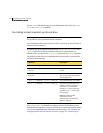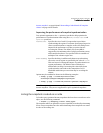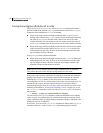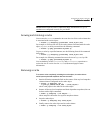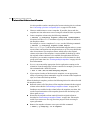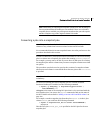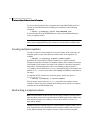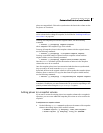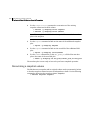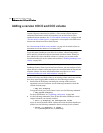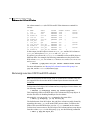
352 Administering volume snapshots
Creating traditional third-mirror break-off snapshots
To convert an existing plex into a snapshot plex in the SNAPDONE state for a
volume on which Non-Persistent FastResync is enabled, use the following
command:
# vxplex [-g diskgroup] convert state=SNAPDONE plex
A converted plex is in the SNAPDONE state, and can be used immediately to
create a snapshot volume.
Note: The last complete regular plex in a volume, an incomplete regular plex, or
a dirty region logging (DRL) log plex cannot be converted into a snapshot plex.
Creating multiple snapshots
To make it easier to create snapshots of several volumes at the same time, the
snapshot option accepts more than one volume name as its argument, for
example:
# vxassist [-g diskgroup] snapshot volume1 volume2 ...
By default, the first snapshot volume is named SNAP-volume, and each
subsequent snapshot is named SNAPnumber-volume, where number is a unique
serial number, and volume is the name of the volume for which the snapshot is
being taken. This default pattern can be overridden by using the option
-o
name=
pattern, as described on the vxassist(1M) manual page. For example, the
pattern
SNAP%v-%d reverses the order of the number and volume components in
the name.
To snapshot all the volumes in a single disk group, specify the option -o
allvols to
vxassist:
# vxassist -g diskgroup -o allvols snapshot
This operation requires that all snapstart operations are complete on the
volumes. It fails if any of the volumes in the disk group do not have a complete
snapshot plex in the SNAPDONE state.
Reattaching a snapshot volume
Note: The information in this section does not apply to RAID-5 volumes unless
they have been converted to a special layered volume layout by the addition of a
DCO and DCO volume. See “Adding a version 0 DCO and DCO volume” on
page 356 for details.
Snapback merges a snapshot copy of a volume with the original volume. One or
more snapshot plexes are detached from the snapshot volume and re-attached
to the original volume. The snapshot volume is removed if all its snapshot



